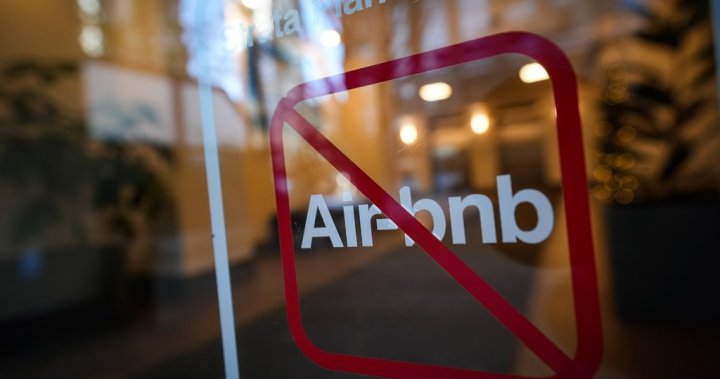Thousands of British Columbia travelers face potential accommodation chaos as the province’s stringent new short-term rental regulations approach their May 1st implementation deadline. With mere days remaining, vacationers with existing Airbnb and VRBO bookings are discovering their reservations might vanish, while property owners scramble to navigate complex compliance requirements or exit the market entirely.
“I’ve had my summer vacation booked since January, and yesterday the host called to say they can’t honor it because of these new rules,” said Vancouver resident Melissa Chang, who had arranged a two-week stay in Tofino for her family. “Now we’re looking at hotel prices that are nearly double what we budgeted for, if we can find availability at all.”
The regulations, part of the provincial government’s housing affordability strategy, aim to return approximately 16,000 units to the long-term rental market amid BC’s housing crisis. Under the new framework, short-term rentals will be restricted to principal residences in most municipalities, with exceptions for designated resort regions or areas specifically zoned for vacation properties.
BC Housing Minister Ravi Kahlon defended the measures at a press conference Tuesday, stating: “These changes prioritize homes for British Columbians who need a place to live over vacation properties. Communities across our province are feeling the pressure of the housing crisis, and we need to take decisive action.“
Industry data reveals the potential economic impact extends beyond disappointed vacationers. The short-term rental sector contributes an estimated $1.5 billion annually to BC’s economy, according to a recent Tourism Industry Association report. Many small operators rely on rental income to cover mortgage payments or supplement retirement funds.
Sarah Martinez, who owns a garden suite in Victoria she has rented short-term for five years, faces difficult choices. “I can’t legally continue under the new rules since this isn’t my primary residence. Converting to a long-term rental means significantly less income, but selling in this market isn’t attractive either,” she explained. “The government gave us very little time to adapt.”
The province’s implementation timeline has drawn criticism from business advocates and tourism officials. The regulations, announced last October, gave operators approximately six months to prepare—a timeframe many industry representatives describe as insufficient given the complexity of the changes.
“We support balanced housing policies, but this rapid transition creates unnecessary disruption for travelers and economic hardship for operators,” said Richard Thompson, executive director of the BC Short-Term Rental Alliance. “Many of our members have already received cancellation requests from travelers worried about the reliability of their reservations.”
Municipal authorities across BC are establishing their own enforcement mechanisms, creating a patchwork of approaches. Vancouver and Victoria have already implemented dedicated enforcement teams, while smaller communities report struggling with limited resources to monitor compliance.
Enforcement will include significant penalties, with provincial fines up to $3,000 daily for non-compliant listings and municipalities empowered to implement additional penalties. Airbnb and similar platforms will be required to share host data with government authorities and display business license information on listings.
Tourism operators in resort communities like Whistler, Tofino, and parts of the Okanagan—where some exemptions apply—report confusion among both property owners and guests about exactly which properties qualify under the new rules.
“Even in areas with exemptions, we’re seeing a cooling effect as owners worry about future regulatory changes or struggle to understand the current requirements,” said Jennifer Allen, a vacation property manager in Kelowna. “Some are simply selling their properties rather than navigating the uncertainty.”
For travelers with existing reservations, the situation remains precarious. While some booking platforms have announced plans to assist affected guests, the extent of disruption remains unclear. Industry analysts suggest booking directly with licensed hotels or confirmed legal operators may be the safest approach for upcoming BC vacations.
As the deadline approaches, both property owners and travelers find themselves caught in regulatory limbo, raising a critical question: can British Columbia effectively balance its housing needs with the economic and cultural benefits of its thriving tourism industry?










